"The World is a lot Poorer without You": a tribute to the great minds we lost in 2017...

Derek Walcott, one of the greatest contemporary poets

|
David Axelrod, US rock producer and composer

|
Jazz musician Misha Mengelberg

|
Rock musician David Peel
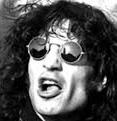
|
Chinese scholar Zhou Youguang

| | |
Jaki Liebezeit, German rock drummer
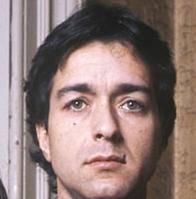
|
Jiro Taniguchi, Japanese manga artists
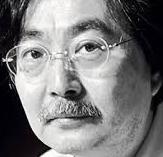
|
Finnish musician Mika Vainio

|
German chancellor Helmut Kohl

|
Computer scientist Robert Taylor, father of the Internet

| | |
Mind philosopher Hubert Dreyfus

|
Jacque Fresco, founder of Venus Project

|
Russian poet Yevgeny Yevtushenko

|
Film director Jonathan Demme

|
Chinese dissident Xiaobo Liu

| | |
Avantgarde composer Pierre Henry

|
Jazz pianist Geri Allen

|
Rock singer Chris Cornell

|
Performance artist Vito Acconci

|
US painter James Rosenquist

| | |
Iranian mathematician Maryam Mirzakhani

|
US filmmaker Jerry Lewis

|
US playwright Sam Shepard

|
French actress Jeanne Moreau

|
Lotfi Zadeh, father Fuzzy Logic

| | |
Artificial Intelligence pioneer Hans Berliner, who built the first backgammon program to beat a world champion

|
Rock and electronic music composer Holger Czukay
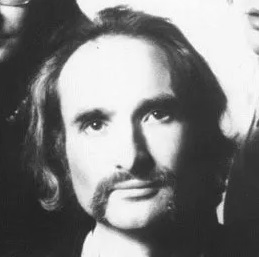
|
Rocker Tom Petty

|
Stanislav Petrov, one of the many unsung heroes of the Cold War, who in 1983 prevented a nuclear war

|
Rock pioneer Fats Domino

| | |
Irish novelist William Trevor

|
Leonard Baum, the mathematician who in 1966 popularized the Hidden Markov Models widely used in Artificial Intelligence

|
Chuck Berry, inventor of rock'n'roll

|
British artist Gustav Metzger

|
Polish sociologist Zygmunt Bauman

|
Neuroscientist Marian Diamond

|
Classical composer David Maslanka

|
California hiker Robert Secor
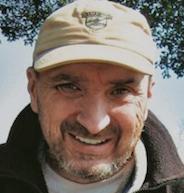
|
Recommended Books:
- Mark O'Connell: "To Be A Machine". A panoramic of the world of transhumanism, cyborgs, utopians and futurists.
- Yukon Huang: "Cracking the China Conundrum: Why Conventional Economic Wisdom Is Wrong". One of the best books to understand modern China that debunks a lot of false myths.
- Robert Sapolsky: "Behave". The ultimate compendium on genetics, neurophysiology, ethology and, in general, all the sciences that study who (what?) you are.
- Christopher de Hamel: "Meetings with Remarkable Manuscripts". An exegesis of 12 medieval manuscripts from archives around the world through 600 pages and 200 illustrations.
- Daniel Dennett: "From Bacteria to Bach and Back - The Evolution of Minds". A good summary of this philosopher's ideas on consciousness.
- Howard French: "Everything under the Heavens". A history of China's historical dogmas (e.g. that its explorers were bringing gifts to foreign countries, not looting them) and how that narrative shapes today's China.
- GW Bowersock: "The Crucible of Islam", third in a trilogy about the history of Arabia before and after Islam. The other two volumes are "Empires in Collision in Late Antiquity" (2012), about the conflict between Byzantium and Persia for control of the Middle East, and "The Throne of Adulis" (2013), about the conflict between the Christians of Ethiopia and the Jews of southern Arabia.
- James Scott: "Against the Grain". An alternative history of how humans became settled in agricultural communities. It wasn't obvious and it wasn't easy. In fact, it had many drawbacks.
- Richard Muller: "Now - The Physics of Time"
- Tim Harford: "Fifty Inventions That Changed the Modern Economy"
- Mary Beard: "Women & Power". Possibly a new milestone in feminist literature
- Ivan Kurilla: “Frenemies”. The history of Russian-American relations written by a professor of history at the European University of St Petersburg.
And in no particular order:
- AC Grayling: "Democracy and its Crisis". His prescription for functional democracy, in particular why referendums are a bad idea.
- Anne Applebaum: "Red Famine". A history of the famine in Ukraine during the Soviet occupation, largely due to a political decision by Stalin.
- Michael Auslin: "The End of the Asian Century - War, Stagnation, and the Risks to the World's Most Dynamic Region". China's many problems will doom it in the near future.
- Oliver Stuenkel: "Post-Western World". China has created a "parallel order" via 22 multilateral institutions that fall outside the Western sphere
- Philippe Van Parijs & Yannick Vanderborght: "Basic Income". An argument in favor of universal basic income
- Mark Regnerus: "Cheap Sex". Human mating is a marketplace and sex is getting cheaper because it doesn't take as much effort as in previous generations (e.g. online dating) and the risks are much lower (e.g., contraception) which means that people are no longer in a hurry to get married.
- Andersen, Kurt: "Fantasyland". How the 1960s and the Internet gave rise to the era of fake news.
- Kevin Young: “Bunk”. Plagiarists, hoaxes and fake news in the USA.
- Pankaj Mishra: "Age of Anger - A History of the Present" . An erudite and alternative history of the world.
- Soni, Jimmy & Goodman, Rob: "A Mind at Play: How Claude Shannon Invented the Information Age"
- Jonathon Keats: "You Belong to the Universe". The most original interpretaton of Buckminster Fuller's intellectual legacy.
- Simon Ings: "Stalin and the Scientists: A History of Triumph and Tragedy, 1905-1953"
- John Brynjolfsson: "Machine, Platform, Crowd".
- James Scott: "Against the Grain - A Deep History of the Earliest States." A new look at prehistory.
- Bruno Macães: "The Dawn of Eurasia"
- Luke Harding's “Collusion: Secret Meetings, Dirty Money, and How Russia Helped Donald Trump Win”, that pretty much says what i have written in my article Where we stand with the Trump-Russia investigation and in my article investigation What's in "Vladimir" Trump's tax returns?.
- Tim O'Reilly: "WTF". Finally a book that focuses on the real problem of the future: the financial world, which is an evil dictator in disguise. It is already doing to us what silly futurists think that evil AI will do. And the difference is that the financial world is here today, it really exists, whereas evil AI exists only in Hollywood movies and (alas) best-selling books of incompetent futurists.
Worst books of the year AFAIK (I am sure there are many books which deserve that title, but these are the ones that i happened to see):
- Steven Kotler's and Jamie Wheal's "Stealing Fire". I can't think if a more conventional and fashionable book that says absolutely nothing and says it so unscientifically. I really have the feeling that they know nothing about all the subjects that they discuss, particularly the ever more fashionable tourist attraction Burning Man. The part on meditation greatly amused a Buddhist friend who spent her life studying meditation.
- Garry Wills' "What the Quran Meant". It's like Fox News writing a biograpy of Donald Trump that depicted him as honest, sincere and mentally stable. Wills (probably well-intentioned) twists every sentence in the Quran to make it look like the exact opposite of what it is (a war manual against all other religions of the world). He accuses us (those who speak out against the ideology of Islam) of "fearful ignorance": we can accuse him of "wishful ignorance", like when he repeats the classic Islamic propaganda that "jihad" does not mean "holy war" but just "striving": Mohammed showed with his actions what "jihad" meant to him and to all of the Arabs of his era. Wills is using 21st century Westernized-Islamic vocabulary, not the original one. Unfortunately, plenty of Muslims in the Islamic world know exactly what the author of the Quran meant with "jihad".
- Max Tegmark: "Life 3.0: Being Human in the Age of Artificial Intelligence". Much better than all the junk on superintelligence and singularity. Tegmark is a physicist and that might explain why he produced a better book than all those futurists. (My take on A.I.: "Intelligence is not Artificial").
Articles:
Tech and Science
- Scientists had edited people’s genes only altering cells in a laboratory and then returning them to the patient, not directly into the body of the patient. In November 2017 Sangamo Therapeutics in a Oakland hospital inserted a gene directly into the body of 44-year-old Brian Madeux that had lacked that gene since birth, hoping to cure him of a rare genetic disease called Hunter syndrome. He accepted to become a living experiment after 26 failed surgeries. The era of "in-vivo genome editing" has begun.
- Sarah Tabrizi's team at UCL in London found a cure for Huntington’s disease
- See The Real Breakthrough: Synthetic Biology
- more
Best films of 2017:
Best jazz albums of 2017:
- Jason Moran: MASS {Howl, eon} (Yes Records)
- Steve Coleman's Natal Eclipse: Morphogenesis (Pi)
- William Parker: Meditation/Resurrection (AUM Fidelity)
- Vijay Iyer Sextet: Far From Over (ECM)
- Roscoe Mitchell: Bells For The South Side
- Craig Taborn: Daylight Ghosts
- Ahmad Jamal: The Awakening
- Lisa Mezzacappa: Glorious Ravage
- Rez Abbasi: Unfiltered Universe (Whirlwind)
- Linda May Han Oh: Walk Against Wind (Biofilia)
- Dave Douglas & the Westerlies: Little Giant Still Life (Greenleaf)
- Joe Fiedler: Like, Strange (Multiphonics)
- Kate Gentile: Mannequins (Skirl)
- Nicole Mitchell’s Black Earth Ensemble: Mandorla Awakening II: Emerging Worlds (FPE)
- Wadada Leo Smith: Najwa (TUM)
- Tyshawn Sorey: Verisimilitude (Pi)
- Jaimie Branch: Fly or Die (International Anthem)
- Rudresh Mahanthappa’s Indo-pak Coalition: Agrima
Best classical music recordings:
- Osvaldo Golijov: Azul - The Knights & Yo-Yo Ma on cello
- Johann Sebastian Bach: Goldberg Variations - Beatrice Rana on piano
- Anton Bruckner: Symphony No. 9 - Riccardo Muti conducts the Chicago Symphony Orchestra
- Antonin Dvorak: Stabat Mater - Jiri Belohlavek conducting the Czech Philharmonic Orchestra and the Prague Philharmonic Choir
- Morton Feldman: For Bunita Marcus - Marc-Andre Hamelin piano
- Stephen Hartke: The Ascent of the Equestrian in a Balloon - Gil Rose conducts the Boston Modern Orchestra Project
- Gustav Mahler: Symphony No. 3 - Ivan Fisher conducts the Budapest Festival Orchestra, Bavarian Radio Chorus, Cantemus Children’s Choir
- The John Adams Edition - Berlin Philharmonic
- Olivier Messiaen: Quartet for the End of Time - Martin Frost clarinet; Lucas Debargue piano; Janine Jansen violin; Torleif Thedeen cello
- Antonin Dvorak: Quintets op. 81 & 97 - Pavel Haas Quartet
- Franz Schubert Piano Sonatas Nos 20 & 21 - Krystian Zimerman on piano
- Sergei Rachmaninov: Piano Concerto No. 2 - Krzystof Urbanski conducts the NDR Elbphilharmonie Orchestra & Anna Vinnitskaya on piano
- Hans Abrahamsen: Four string quartets - Arditti Quartet
- Linda Catlin Smith: Drifter - Her own chamber music
- Tigran Mansurian: Requiem - Munich Chamber Orchestra
- Prokofiev: Symphony No. 7 - Marin Alsop conducts the Sao Paulo Symphony Orchestra
- Alex Mincek: Torrent - Three of his own compositions
- George Tsontakis: Anasa, True Colors, Unforgettable - Albany Symphony Orchestra
Best classical music compositions that i heard in 2017:
- Osvaldo Golijov: Azul (2009)
- Tigran Mansurian (Armenia, 1939): Requiem (2011)
- George Tsontakis (USA, 1951): Violin Concerto No. 2 (2008)
- Hans Abrahamsen (Denmark, 1952): Schnee for large ensemble (2008)
- Stephen Hartke: Symphony 3 (2003)
- Alex Mincek (USA, 1975): Pendulum VII (2012)
- Linda Catlin Smith (USA, 1957): Drifter (2009)
Heroes of the year:
- Three heroes who stood up to the quasi-dictator of their respective countries:
- Russia's main opposition leader Alexei Navalny
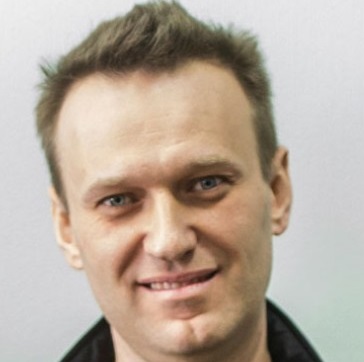
- Turkey's opposition politician Enis Berberoglu who was sentenced to 25 years in prison for publishing a video proving that the Turkish government has been secretely arming Islamists in Syria

- FBI director Comey, fired by "Vladimir" Trump for refusing to stop the investigation into the Trump-Russia collusion

- All the journalists assassinated around the world: Kim Wall (Denmark), Dmitry Popkov (Russia), Nikolai Andrushchenko (Russia), Daphne Galizia (Malta), Taimoor Khan (Pakistan), Abdul Hakim Shimul (Bangladesh), Gauri Lankesh (India), Javier Cardenas (Mexico), Maximino Rodriguez (Mexico), Miroslava Velducea (Mexico), Cecilio Birto (Mexico), Joaquin Briones (Philippines), Ali Nur Siad (Somalia), Edgar Castro (Somalia), Christopher Allen (South Sudan), Habibollah Hosseinzadeh (Afghanistan), Hawker Faisal Mohammed (Syria), Dilshan Ibash (Syria), Osama Nasr al-Zoabi (Syria), Khaled al-Khateb (Syria), Alaa Kraym (Syria), Mohamed Abazied (Syria), Sudad Faris (Iraq), Harb al-Duleimi (Iraq), Veronique Robert (Iraq), Stephane Villeneuve (Iraq), Suhaib al-Heeti (Iraq), Louay Sadiq Meshaal (Iraq), Shifa Zikri Ibrahim (Iraq), Takieddin al-Hudhaifi (Yemen), Wael al-Absi (Yemen), etc.
( Current events)
|










































